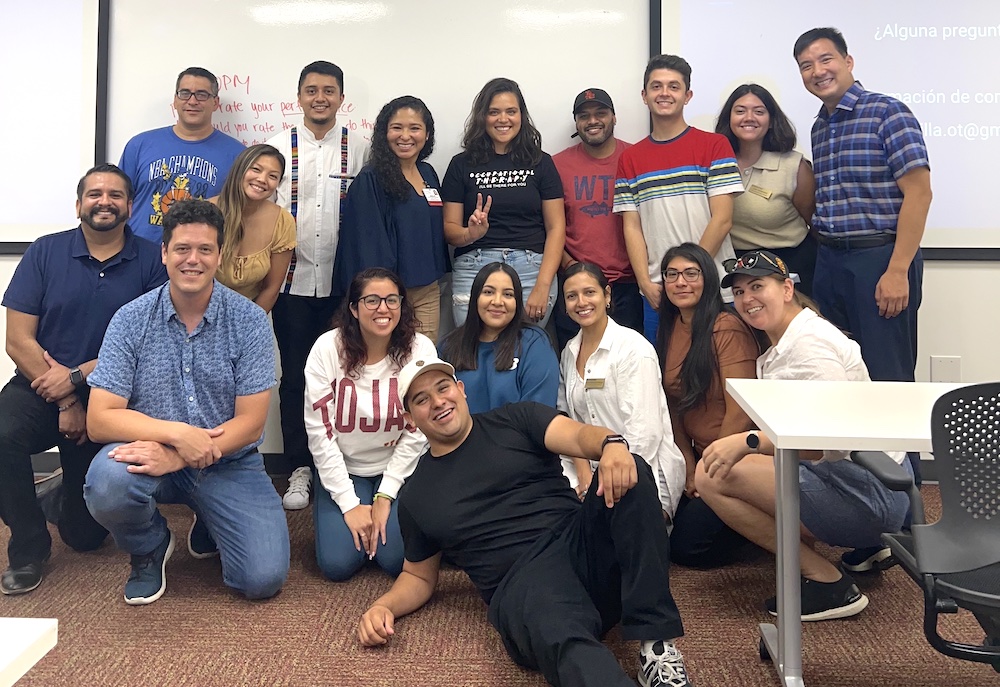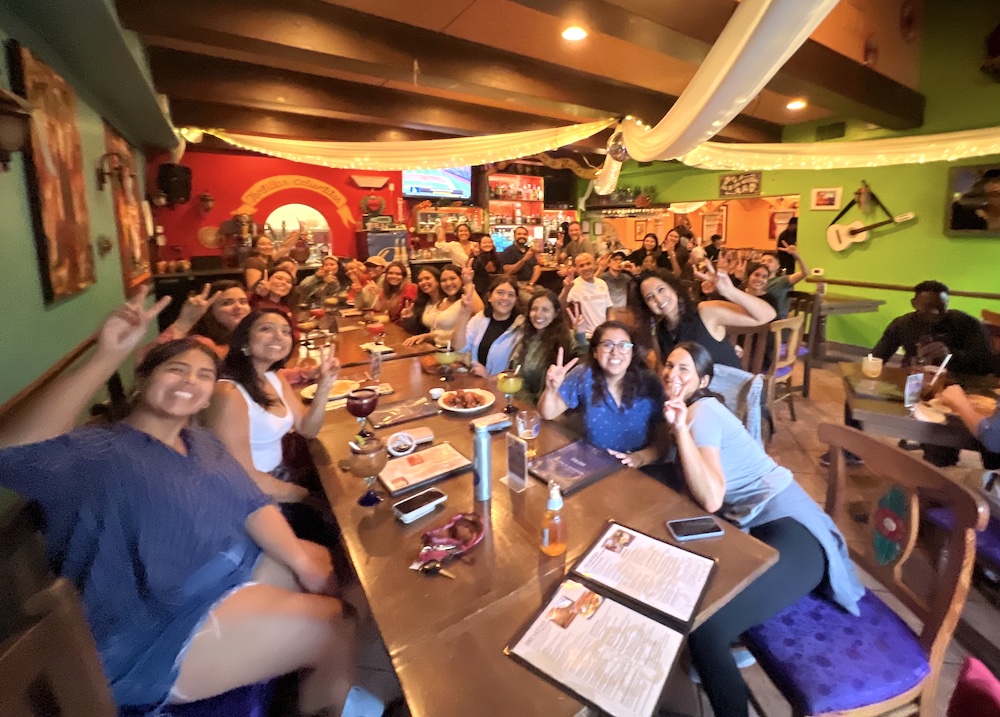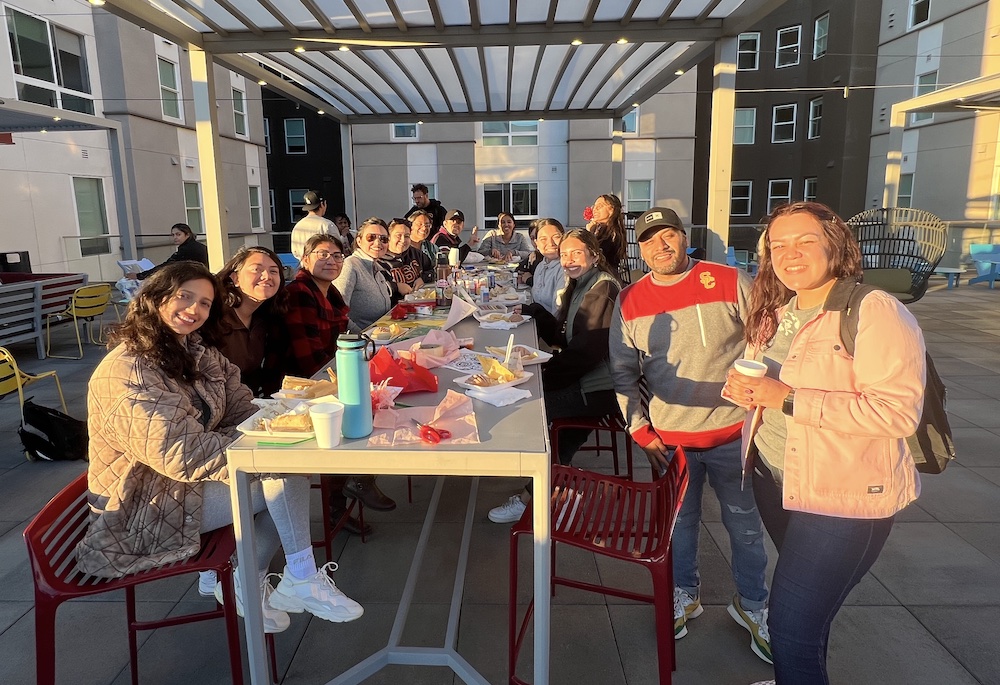Student Blog
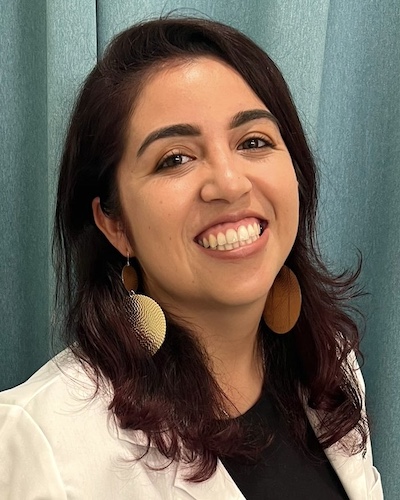
Latinx Heritage Month Celebration ⟩
November 29, 2022, by Tania
Community Diversity First-Gen Getting Involved
Asociación Hispanohablante de Terapia Ocupacional (AHTO) is a student organization in the Chan Division, with the goals to improve the educational experience of Latinx students and to provide care/resources to the Spanish-speaking community. We are a group of aspiring OTs passionate about working with underrepresented and underserved communities. AHTO hopes to support the retention of students of color within the division and to advocate for the needs that our community requires. AHTO is a student organization made by the students and for the students.
We all know the importance of representation in higher education and healthcare. Therefore, the AHTO board worked together to create several events in celebration of Latinx Heritage Month.
The first event was café con pan dulce, which allowed students to connect over some cafesito and conchitas. That same day during lunch students gathered to play Loteria, which is similar to Bingo.
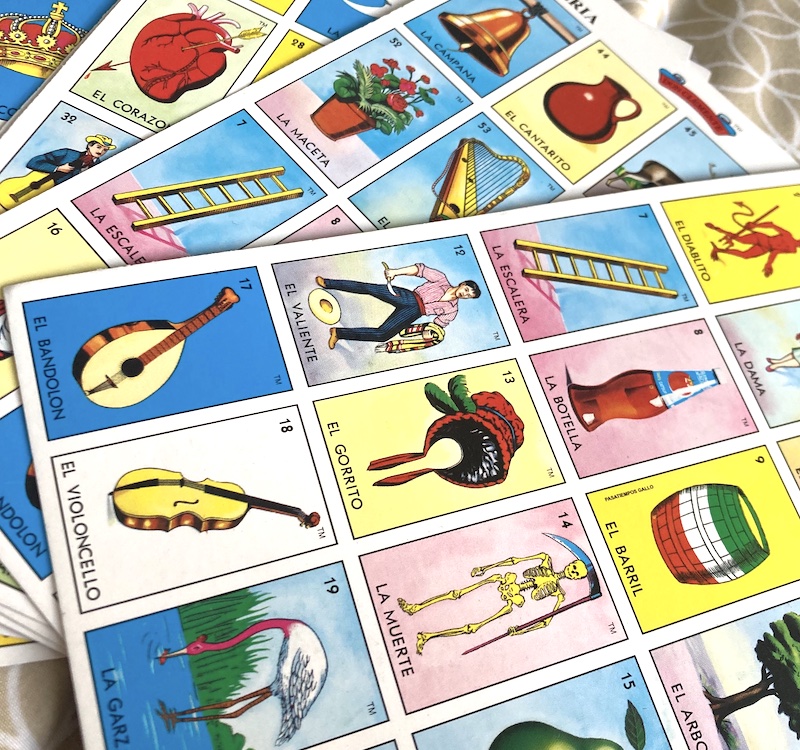
The next event was Case Studies en Español, and this event was made possible with the collaboration of Dr. Celso Delgado Jr.. Our two presenters, Dr. Marilyn Thompson and Dr. Daniel Padilla reviewed two different case studies in Spanish and provided tips on how to best serve the Spanish-speaking community.
We also had a social at a local Latinx-owned restaurant, Casa Fina Restaurant, to support businesses in the community. We enjoyed good food, good music, and great company. We had over 30 people at the event. It was beautiful to see so many people in one room building community.
We closed the celebration with Dia de Los Muertos. Students enjoyed tamales, pan dulce, and crafts.
AHTO hopes to create a safe space and a home away from home for those in the division. We understand that there have been other Latinx organizations before us that maybe have not lasted, but the fact that an organization keeps arising time by time lets us know the need for support in the division and the willingness of our community.
If you are a student and you are interested in getting involved, stay on the lookout for elections next semester!
If you are staff / faculty and wonder how you can best support our student group here are a few ways:
- Attend our events
- Promote our events
- Advocate for funding for student orgs
- Ask us what we need
Special thanks to Dr. Celso Delgado Jr. and Dr. Danny Park for their collaboration and support!
⋯
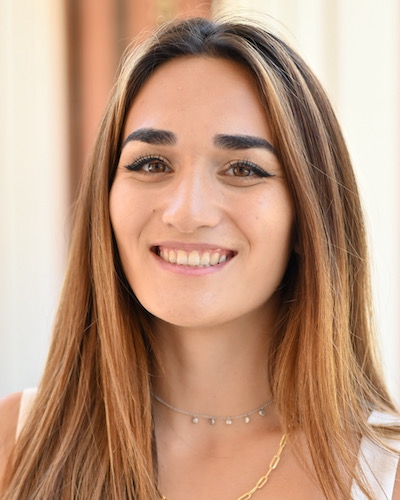
External Residencies Are the Move ⟩
November 22, 2022, by Leah Mary
During my 2nd year in the Entry-Level Master’s program, I felt enormous pressure to apply to the internal residency. I had my rose-colored glasses on. USC’s internal residencies are competitive, prestigious, and well-funded. Everyone was applying, so I felt compelled to apply. However, when I researched and learned about each residency site, I couldn’t see myself there. It wasn’t for me.
I didn’t think I was going to do the Post Professional OTD. It was expensive, and I didn’t want to pay for another year of school during a pandemic. I was very close to not applying until I talked to Dr. Bream. We explored the external residencies sites that suited my interests and could support me. I ended up committing to Hiller Therapy, where I am both the Occupational Therapy Resident AND a part-time employee, and I LOVE IT!
So here is a list of why I recommend getting excited about an external residency:
Schedule
You can create your own schedule! I am completing the Post-Professional OTD within a year and a half instead of one year to allow me to work part-time. In addition, you have the flexibility to defer for a semester or a full year.
Income
Oh yeah, you can work as an OT once you pass the NBCOT and obtain your license. That means you can make an income!
Low-stress
I did not feel overwhelmed after summer fieldwork. I was able to take a couple of OTD courses and have enough time to study for the NBCOT without the pressure of 20-30 hours/week of residency.
Location Location Location
If you don’t want to stay in the LA area, you can do your OTD anywhere (nationally or internationally). The OTD courses can either be in person or over Zoom.
Advocate for your needs
I was able to ADVOCATE for what I needed and wanted from my residency site.
Ultimately, do what you want to do. Advocate for your needs, and don’t let institutions or people pressure you into things you don’t want to do!
⋯
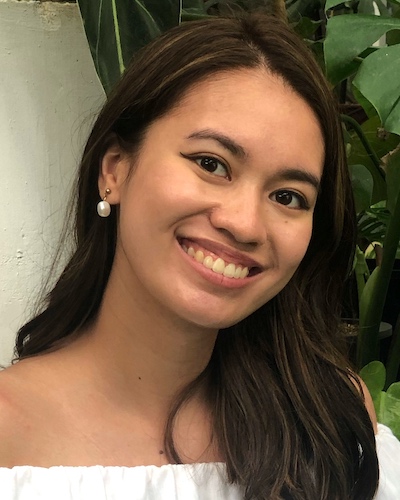
Chika with Mika: Life as a Post-Professional Master’s Student 2022 Edition ⟩
November 18, 2022, by Mika
Classes Community Diversity International Living in LA School/Life Balance Videos
Hello everyone!
So in Tagalog, chika means “chit-chat”. For this month’s blog post (or rather vlog post), I wanted to chika with you what’s it like to be a post-professional master’s student here in USC Chan! Get to see the Health Science Campus where we have most of our classes and meet some of my friends here in the program. I also shared some clips of my adventures here in LA, particularly in the Grand Central Market, Griffith Park, and Venice Beach!
Happy watching!
⋯
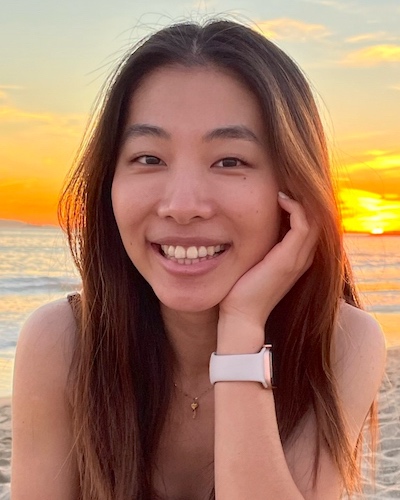
A Week in the Life! ⟩
November 17, 2022, by Yoojin
Classes Community Living in LA School/Life Balance
As a student ambassador, one of the questions I get the most is how my weekly schedule looks like. Do I have time for a part-time job? What about hobbies? Hanging out with friends and family? Basically, when I enroll in this program, will I have a life outside of school? The short answer is yes. I have a great balance of academics and engaging in my favorite occupations.
With that being said, here’s a little glance into a typical week:
Monday: aside from class from 1:30 PM – 5:30 PM, I go to the gym, go grocery shopping, or just sleep in. In the evening, I try to catch the sunset (at least I did before Daylight Savings ended) on one of my favorite short hikes near HSC, Ascot Hills. All USC students have a free membership for the three gyms on UPC and one at HSC.
Tuesday: Level I Fieldwork, a once-a-week hands-on experience at a site in the community (ex. hospital, private clinic, community center, permanent supportive housing, school). I’m here from 10 AM – 4 PM, but your hours will depend on your specific site.
Wednesday: class from 9 AM – 4:30 PM, with a 1.5-hour lunch break to eat lunch and work on a drawing in the craft restorative classroom with my friends. Throughout the semester, there are events led by various student organizations. This week, I attended an open forum with students and Chan leadership to discuss the recent administrative changes in Chan admissions leadership regarding holistic admissions and diversity.
Thursday: class from 9 AM – 4:30 PM, with a 1.5-hour lunch break where I usually work and grab Dunkin’ Donuts from on campus and attend a meeting. Global Initiatives (GI), USC Occupational Therapy and Science Council (OTSC), and Coalition of Occupational Therapy Advocates for Diversity (COTAD) are hosting a Friendsgiving dinner.
Friday: I have no class or fieldwork, so I run errands. In the evening, I go out with friends. LA has so many things to do. Here’s a previous student blog about some activities.
I’ve also picked up a handful of occupations over the summer that I mentioned in my previous blog. Work-life balance needs active effort to achieve, but it’s definitely doable in OT school.
⋯
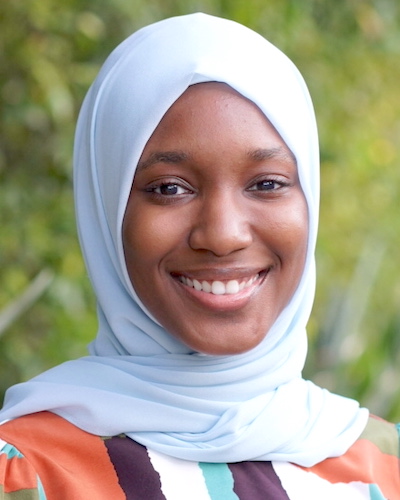
Hidden Gems and Resources ⟩
November 8, 2022, by Aisha
Life Hacks Living in LA School/Life Balance
Several resources and perks that come with being a USC student aren’t widely advertised. Here is a list of things I accidentally stumbled upon or heard by word of mouth that all students on the health sciences campus (HSC) should know about.
1. One Stop at HSC: Here, you can find discounted movie tickets, theme park tickets, and more! I love going to the movies with my friends and family, but as many of you know, movie tickets can be expensive in LA. At One Stop at HSC, you can purchase discounted movie tickets that don’t expire at Regal Cinemas, AMC Theatres, Cinemark Theatres, etc. My favorite is getting AMC tickets for $10.75 and going to the theater near Universal Studios, with comfy reclining seats!
2. Cheap food at the Keck Cafeteria: On the days you didn’t eat breakfast or pack a lunch, you can find affordable food at the Keck Cafeteria. You will need to show your student ID to enter the building. You can find the cafeteria on San Pablo St. near the Eric Cohen Student Health Center.
3. Farmers Market: Every Thursday, from around 10 am until 2 pm, there is a mini farmers market on the corner of Alcazar and San Pablo. Several vendors are selling fresh fruit, delicious food, and drinks such as pupusa, shawarma sandwiches, popcorn, and Aguas Frescas! I look forward to being on campus on Thursdays to get a tasty treat from the farmers market.
⋯






